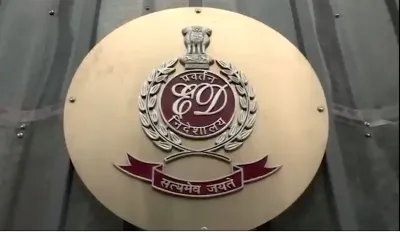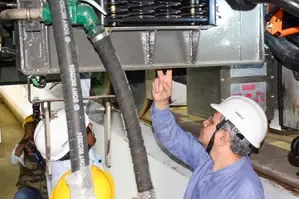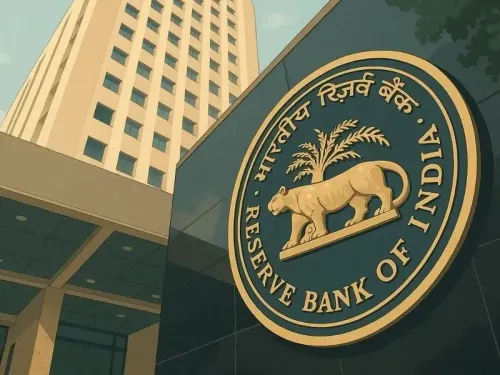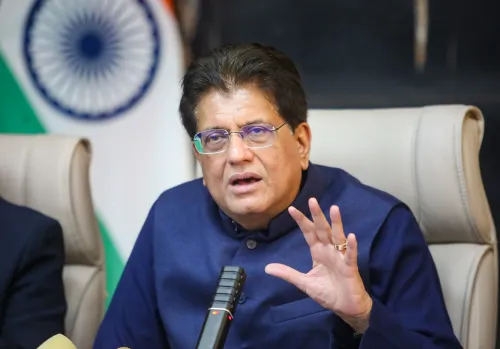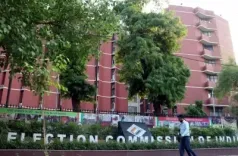CII Proposes 10-Point Strategy for Enhancing Business Operations

New Delhi, Jan 12 (NationPress) As the Union Budget for 2025-26 approaches, the Confederation of Indian Industry (CII) has unveiled a 10-point strategy to enhance the ease of doing business (EoDB) in India, highlighting the critical need for timely policy reforms.
Chandrajit Banerjee, the Director General of CII, emphasized that priorities should include simplifying regulatory frameworks, reducing compliance burdens, and improving transparency in the coming years.
“The compliance requirements for industries in areas such as land, labor, dispute resolution, tax payments, and environmental regulations offer significant opportunities for reduction, which is essential for enhancing competitiveness, fostering economic growth, and generating employment,” he stated.
Firstly, all regulatory approvals at the central, state, and local levels should be processed exclusively through the National Single Window System (NSWS) to promote transparency and expedite procedures.
The CII suggests that a specific central budget should be designated for this initiative to encourage states to fully transition to this system.
“Secondly, an Act could be introduced to ensure timely processing of industry applications and service delivery from central ministries, imposing a statutory obligation on public authorities for time-bound services and grievance redressal, including deemed approvals past the set timelines,” the CII pointed out.
Next, it's essential to accelerate the dispute resolution process by enhancing court capacities and increasing reliance on Alternative Dispute Resolution (ADR) mechanisms.
States with high case backlogs should establish more commercial courts and work towards improving the efficiency of the current judicial framework.
“Fourth, the National Judicial Data Grid (NJDG) should broaden its scope to include tribunal data, as these cases represent a significant portion of pending matters within the legal system,” according to CII’s agenda.
Fifth, to streamline environmental compliance, a unified framework should be developed to consolidate all requirements into a single document. This would incorporate relevant sections of the Water Act of 1974 and the Air Act of 1981 into the Environmental Protection Act of 1986, centralizing regulations related to air and water pollution.
The sixth point highlights the necessity of accessible land to support new or expanding businesses.
“States should be encouraged to create an Online Integrated Land Authority aimed at streamlining land banks, digitizing records, providing information on disputed land, and guiding essential reforms,” the CII stated.
To aid nationwide land acquisition, the India Industrial Land Bank (IILB) can evolve into a National Level Land Bank, supported by a dedicated central budget.
Seventh, the extensive and complicated nature of labor compliance awaits the implementation of the four Labour Codes.
Additionally, the Shram Suvidha Portal, which currently facilitates compliance for select central Acts, should expand to function as a centralized platform for all central and state labor law compliance, as per the industry chamber.
“Eighth, enhancing trade facilitation is crucial. The Authorised Economic Operator (AEO) program, which offers priority clearances, should be made more attractive and accessible,” it noted.
Additional incentives might include extending the deferred duty payment period from 15 days to 30 days, simplifying the renewal process for AEO Tier 2 and Tier 3 by allowing self-declaration, and permitting MSMEs to join the program with 10 shipping bills annually instead of 5 in each half of the year.
The ninth point advocates for improved trade facilitation, suggesting that legal metrology rules should align with the International Organization of Legal Metrology (OIML) for retail product declarations concerning imports.
Finally, the escalating backlog of tax disputes poses a significant concern, necessitating efforts to reduce income tax litigation by addressing backlogs at the Commissioner of Income Tax (Appeals) level and enhancing the effectiveness of ADR mechanisms such as Advance Pricing Agreements (APA), Boards for Advance Rulings (BAR), and Dispute Resolution Schemes (DRS), according to CII.


